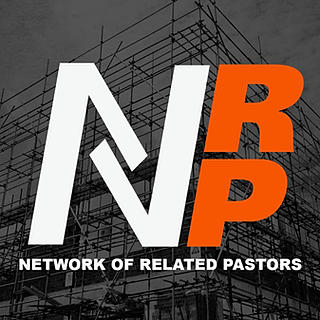Leadership in Context Episode 64 Show Notes
- NRP
- Dec 3, 2019
- 3 min read

Building the Church, pt3
Leadership in Context with Keith Tucci
Episode 064
1. Are we purpose driven or need focused?
2. What is your worship theology?
3. Do you have a doctrinal plan?
There is an old saying: Inspiration will move people, but thinking will enlarge people.
I believe this to be true. When we look at the state of the Church today, we see people who are moved but unable to hold their ground.
Hebrews 5:11-18 Concerning him we have much to say, and it is hard to explain, since you have become dull of hearing. For though by this time you ought to be teachers, you have need again for someone to teach you the elementary principles of the oracles of God, and you have come to need milk and not solid food. For everyone who partakes only of milk is not accustomed to the word of righteousness, for he is an infant. But solid food is for the mature, who because of practice have their senses trained to discern good and evil.
Hebrews 6:1-2Therefore leaving the elementary teaching about the Christ, let us press on to maturity, not laying again a foundation of repentance from dead works and of faith toward God, of instruction about washings and laying on of hands, and the resurrection of the dead and eternal judgment.
In chapter 6, these verses are saying that all believers agree on those principles, but that is time to add to them and teach the doctrine of Jesus (which is what the author does in the rest of the book of Hebrews).
The process described in chapter 5 about not growing in the Word is where we find the Church today and something that needs to be addressed. We must identify critical doctrines that need to be preached, extrapolated, and expounded upon so we can be rooted firmly in Truth.
Here are some doctrinal message examples:
The Trinity: The Bible teaches the Godhead. This is about the nature and character of God. We need to instruct people about it.
Sin Nature: It is an interesting subject when you talk about the fallen state of man. It’s almost a lost subject in the church. The gospel is presented most times as “Jesus loves you and wants to improve your life” rather than “You’re really a sinner headed for hell and God intervened for you.”
Aspects of Redemption: Teaching on the difference between justification, identification, sanctification, and glorification.
Heaven and Hell
Demons and Angels: Not just talking about it, but going into the origin of Lucifer being thrown out of Heaven so that people really understand it.
The Gifts of the Spirit: These gifts are essential in the growth and building of a dynamic, reproducing church. How do we present them? Do we not teach on them, thus implying that they aren’t important? If we would teach the theology of the gifts of the Spirit and exalt the Holy Spirit in that process, we could build a framework for the working of the gifts in our body.
Most people’s theology is based on experiences and a few Christian quotes instead of the Bible. They look at God, based on their experience and not through the lens of Truth.
When we don’t intentionally preach these doctrinal messages, we end up simply preaching to need and having great inspirational times without imparting clear biblical theology to people, helping them understand Who God is and how they can attach themselves to the character and nature of God.
If we were more intentional with this, realizing there are only 52 weeks per year, and letting it trickle down into your small groups and discipleship classes; it would develop the criteria and system for church membership, how we identify growth, and how we execute our mission. We need to have a doctrinal plan—an identified plan specific subjects. There needs to be a steady diet of teaching certain doctrines on a regular basis.
Join us next week as Keith Tucci continues to put leadership truth in the context of the local church. And as always, please like, share, rate/review, and invite others to listen. See you next week!







Comments